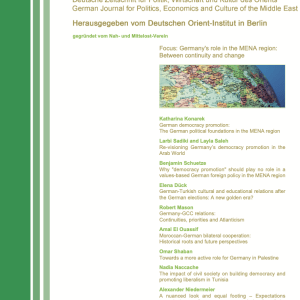Description
This article starts by briefly defining the concept of civil society and then reviews the literature on the role of CsOs in post-conflict countries based on empirical evidence. The subsequent sections examine the causes behind the Tunisian revolution, and critically analyse the involvement of CsOs in building democracy and promoting liberalism following the revolution. The article concludes that the role of civil society in Tunisia was critical to the country’s transition to democracy and to its discourse for liberal reform. Therefore, governments should create opportunities for CsOs to positively contribute towards these political transitions. However, there are other factors beyond civil society, such as state legitimacy, that also have a bearing on the ultimate success or failure of political settlements. Finally, the article argues that CsOs will be able to help a political transition in a country if they consider advocating for not only a democratic state but also for a liberal democratic state, as in the ongoing case in Tunisia.
Nadia Naccache is currently working as Program Development Advisor for Resilience and Community Empowerment project in Tunisia with FHI 360, holding two master degrees: an Msc in International Development from the University of Birmingham, United Kingdom and a Master of Research in Management and strategy from the Institute of Higher Commercial studies (IHEC Carthage). she has extensive cross-cultural experience in international development with international NGOs in different multicultural contexts, where she has undertaken research on topics such as the youth’s economic inclusion, education and employment in Tunisia, social entrepreneurship in Poland and female activism in Tunisia before and after the revolution. Passionate about the international development sector, she has been working on projects addressing issues related to youth, culture, education, youth’s economic inclusion, gender and development.




Reviews
There are no reviews yet.